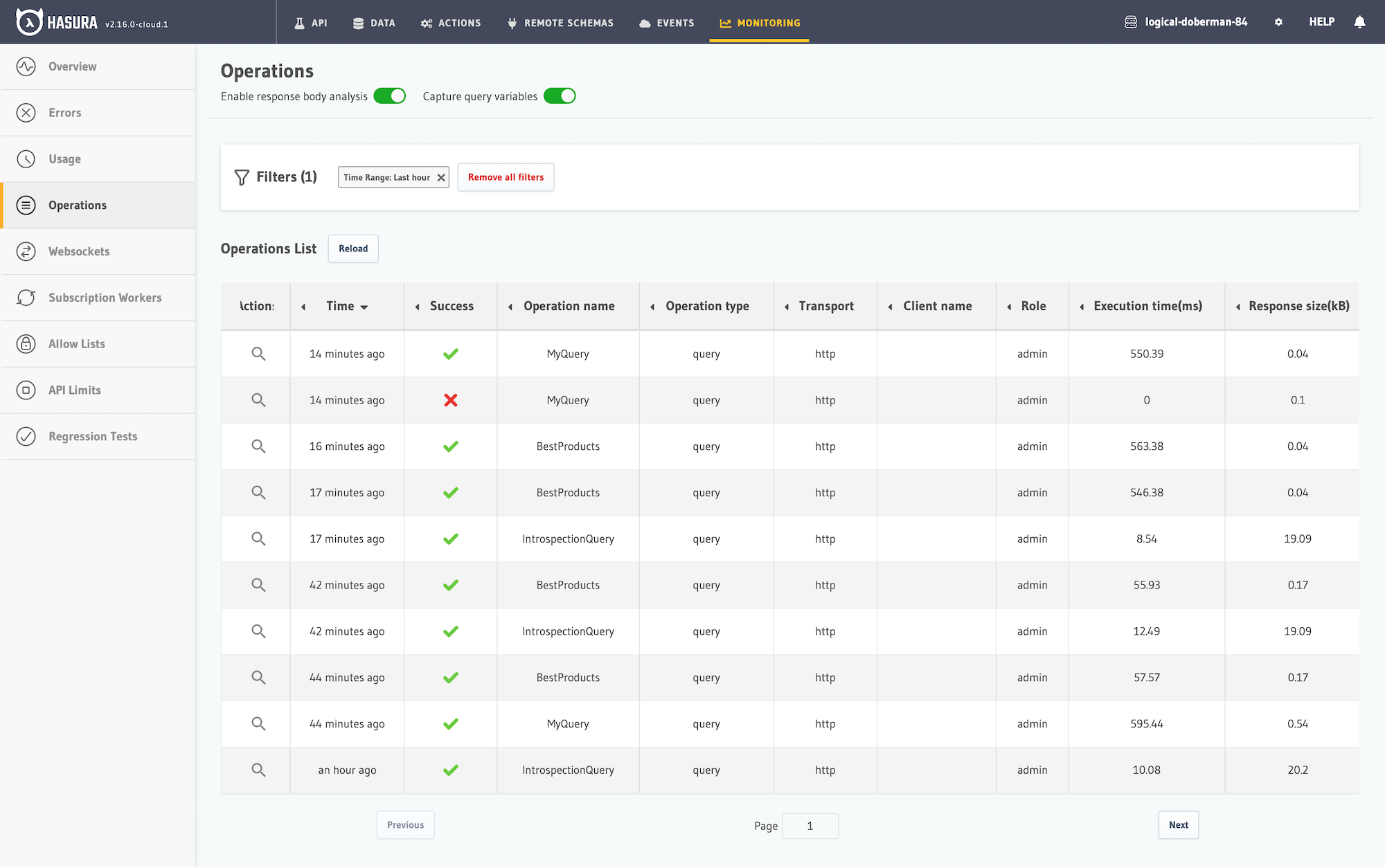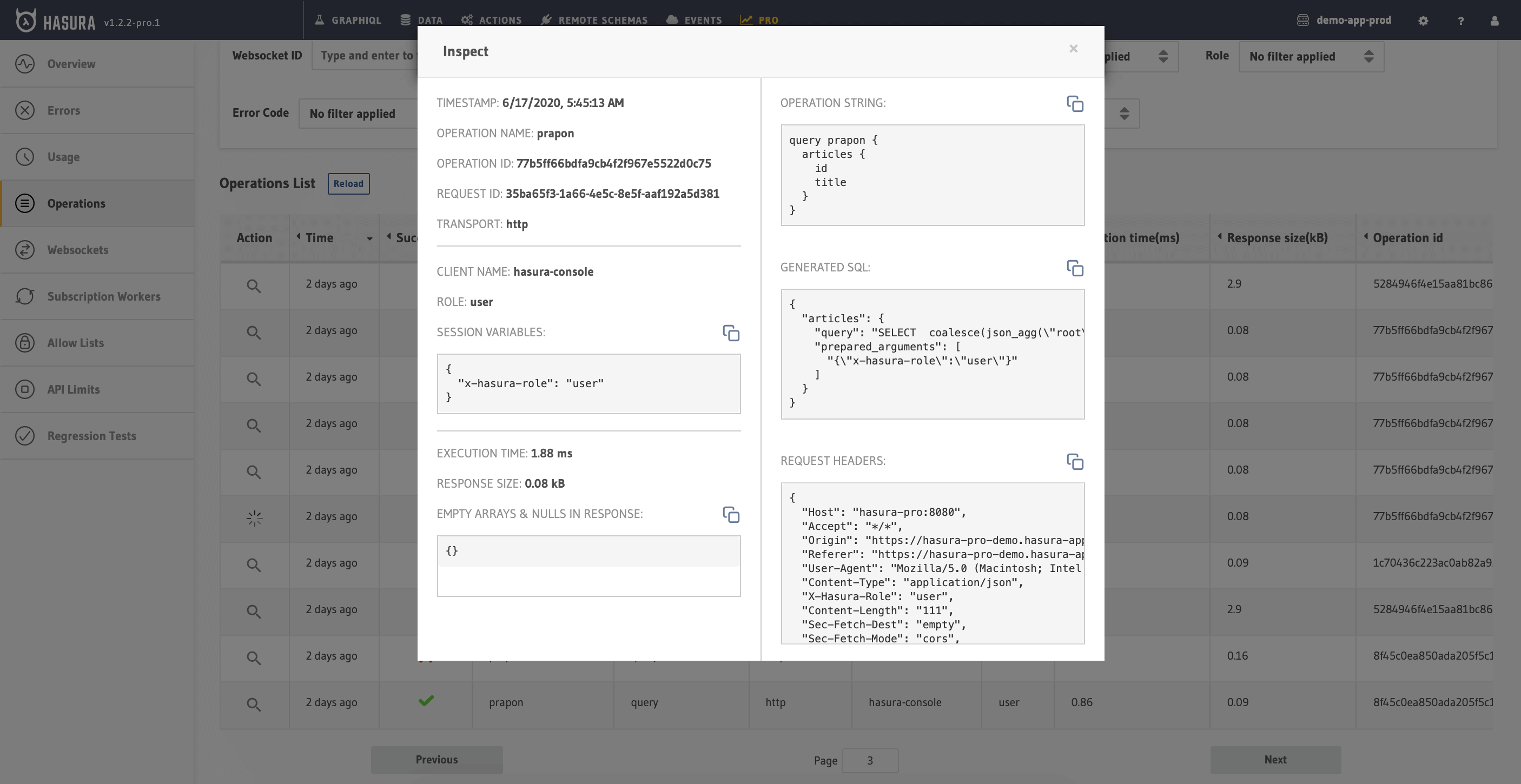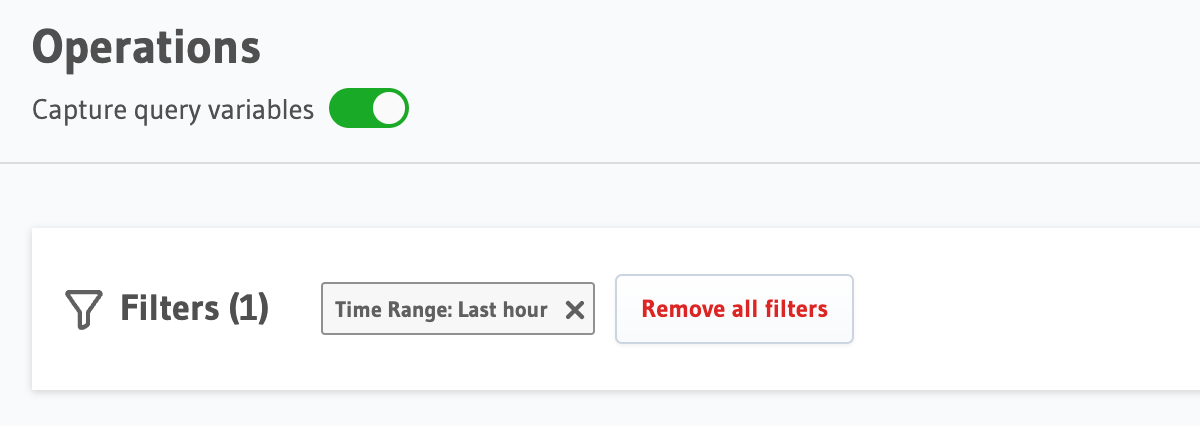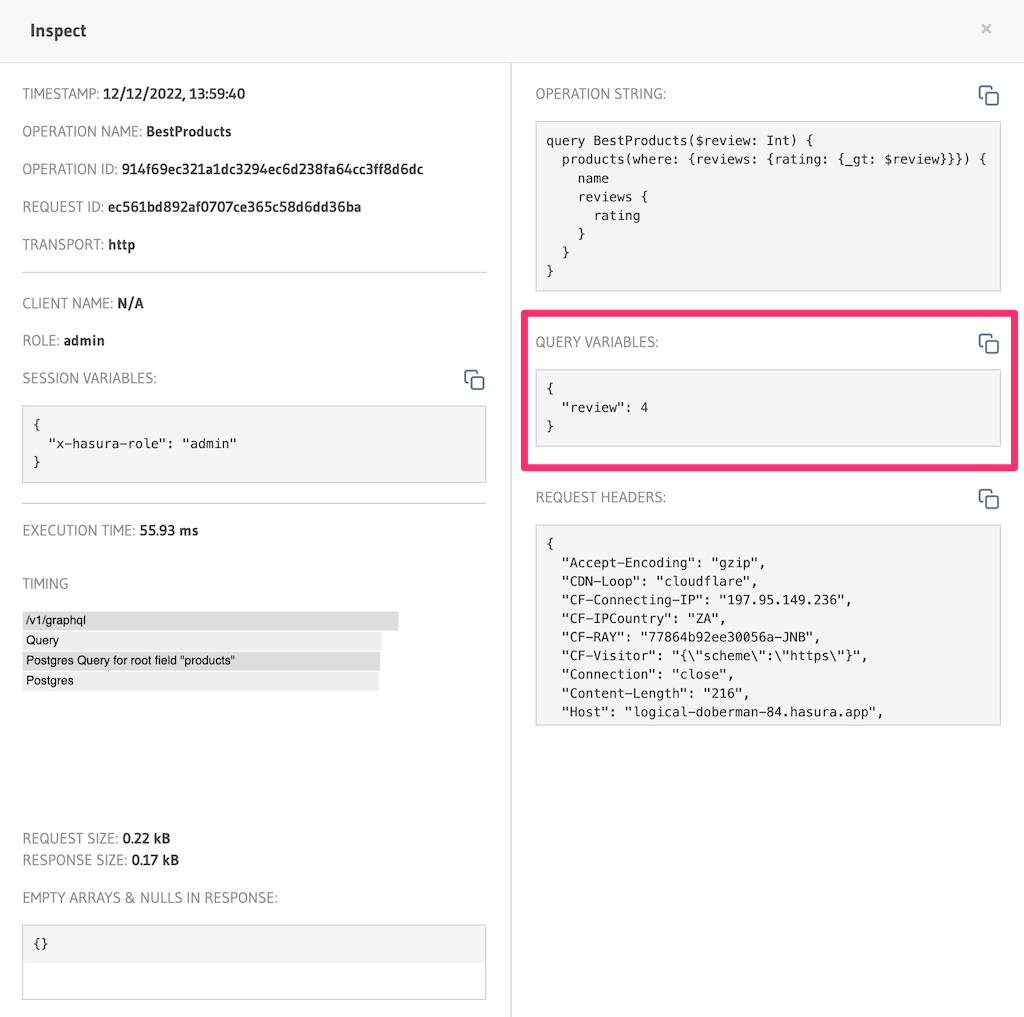Operations
Introduction
The Operations tab will present a processed real-time log of all requests to the GraphQL Engine. Here you can also inspect individual operations.


Capture query variables
At the top of the Monitoring > Operations page in the Console, you can select whether to turn on "Capture query
variables" which is disabled by default.

When "Capture query variables" is enabled, you are able to inspect the query variables provided for each request.

Terminology
Operation
Any GraphQL (query, mutation, subscription) request made to v1/graphql endpoint of a GraphQL Engine instance
Operation name
(Optional) Any GraphQL request can be labelled with a name by the client making the query. In this example,
getPollOptions is the operation name:
query getPollOptions (
poll {
options {
id
name
description
}
}
}
Operation ID
A unique, auto-generated hash for each Operation name; can distinguish between different operations executed with the
same name
Operation type
Whether the operation is a query, mutation, or subscription
Request ID
A unique, auto-generated ID for each request, comes from x-request-id HTTP header
Websocket ID
A unique ID generated by the server when a websocket connection is established by the client
Websocket Operation ID
A unique ID generated by the websocket client for each operation it is sending to the server
Filtering operations
Click on the Filter header to open the menu of filter options
| Filter option | Filter type | Example or options |
|---|---|---|
| Time range | timestamps | last hour, last 6 hours, last 12 hours, last 24 hours, or custom range |
| Operation ID | string (text field) | 5284946f4e15aa81bc868316d56aa68f |
| Operation Name | string (text field) | getPollOptions |
| Request ID | string (text field) | e15f7bj9-3b9f-4152-92a4-e745471514af |
| Show only errors | boolean (checkbox field) | true or false (default false) |
| Websocket ID | string (text field) | def703fc-851f-48e8-8e5c-cbdead37b2fe |
| Websocket Operation ID | string (text field) | 110 |
| Hide introspection query | boolean (checkbox field) | true or false (default false) |
| Operation Type | enum (select field) | query, mutation, subscription, all |
| Role | enum (select field) | from x-hasura-user-role: no role, admin, user, ... |
| Error Code | enum (select field) | no error code, access-denied, depth-limit-exceeded, ... |
| Client Name | enum (select field) | no client name, hasura-console, hasura-test-runner, ... |
| Transport | enum (select field) | http or ws |
| Status | enum (select field) | started or closed |
Sorting operations
Each column in the Operations List can be sorted (ascending or descending) just by clicking on it. Very useful for identifying operations with unusually high execution time or response size!